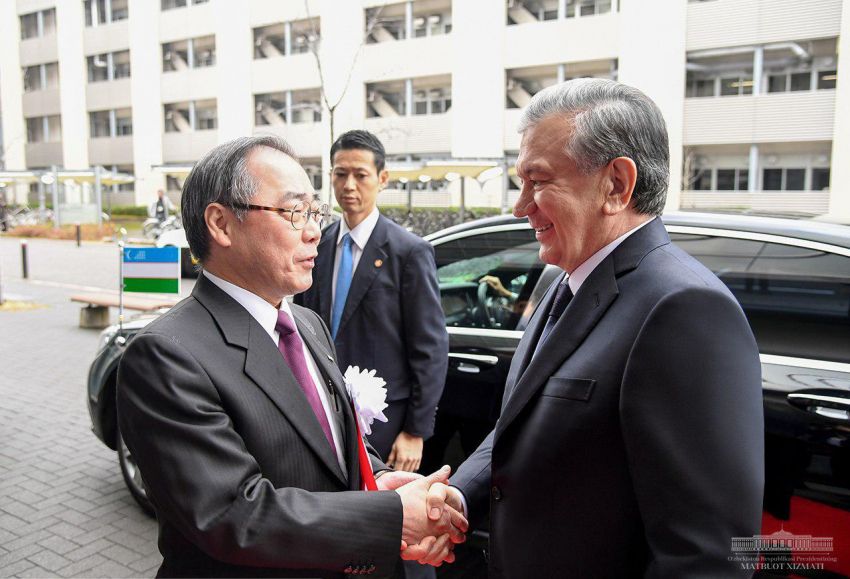
The Government portal of the
Republic of Uzbekistan
President of Uzbekistan visits Nagoya University
2019-12-18 | Politics
The next important destination of the official visit program of the President of the Republic of Uzbekistan Shavkat Mirziyoyev to Japan became Nagoya University.

Nagoya University is one of the most prestigious scientific and educational institutions in the world, one of the top ten on the continent.
Many prominent scientists studied and work here. Six of them are Nobel Prize winners in physics and chemistry.
Today, the University has more than 16 thousand students, of which 2.6 thousand are from foreign countries, including over 30 from Uzbekistan.
In total, over 400 students and researchers from Uzbekistan were trained at this university.
Since 2010, a representative office of Nagoya University has been operating in Tashkent, which today serves as a reliable bridge between the higher education institutions of the two countries. With the direct participation of the university, Uzbekistan – Japan Academic Forum and Conference of Rectors are regularly held in the two countries, which play an important role in the life of scientific community.
The President of Uzbekistan got acquainted with the activities of the university, held a meeting with its President, Seiichi Matsuo, with participation of a number of Nobel Prize winners and other scientists.
“We highly appreciate your merits in development of scientific cooperation between our countries. Especially your last year’s visit to Uzbekistan, together with the Nobel Prize winner, Professor Ryoji Noyori, became an important event in the scientific life of our country”, said Shavkat Mirziyoyev.
Taking into account the worthy contribution of Seiichi Matsuo to the development of science, he was recently elected the Honorary Rector of the University by the Scientific Council of Tashkent State Technical University. Professor Noyori was awarded the title of Honorary Academician of the Academy of Sciences of Uzbekistan.
The President of Uzbekistan congratulated Seiichi Matsuo and Ryoji Noyori with these titles.
At the meeting, an agreement was reached on enhancing exchanges and promoting joint scientific research in priority areas of cooperation.
Source: UzA









